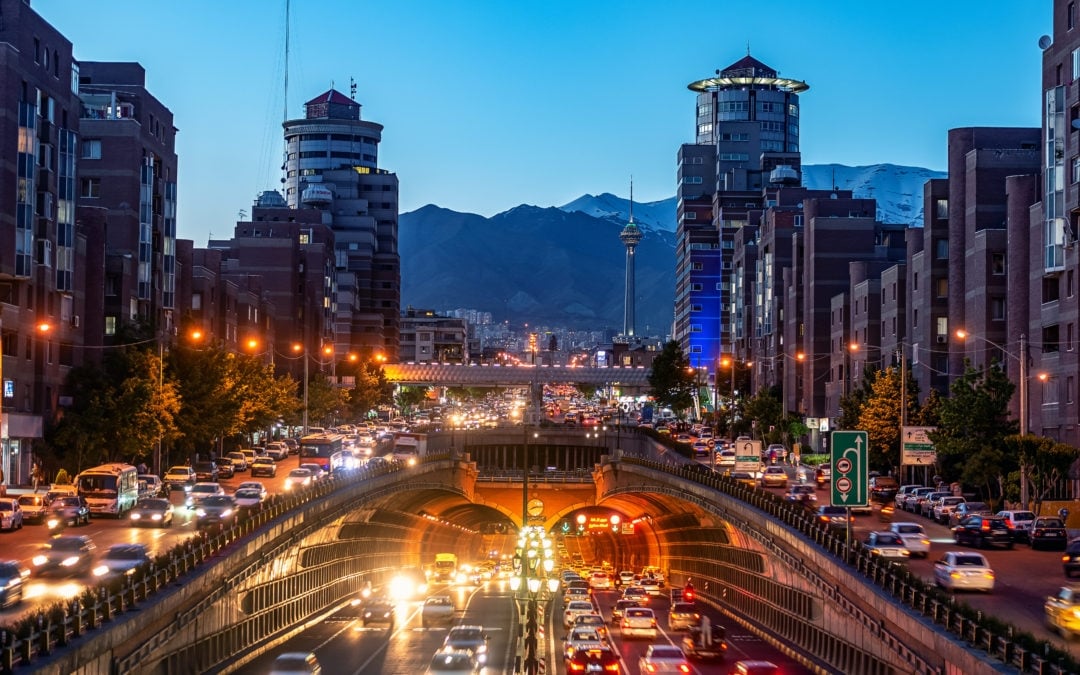Raisi's proposal aims for 8% economic growth for Iran
Iranian President Ebrahim Raisi's proposal is an optimistic deed for Iran's economic growth, challenging US sanctions.
-

Tohid Tunnel in Tehran, Iran.
Iranian President Ebrahim Raisi posited new economic reforms Sunday, aiming for an 8% economic growth and increased crude oil sales of 1.2 million barrels a day, challenging US sanctions.
After the bill submission was a week late, Raisi submitted the annual budget bill - bill 1401 - to the legislature; a bill that addresses a series of resolutions for Iran's economy, which suffers from slow growth and a depreciating currency.
The bill has been sent to the legislature for review, approval, and/or amendment; as soon as parliament supports the government's proposal, the Guardian Council - the constitutional supervisory body - will ratify it on its way to becoming a law in Iran.
Tehran faces a series of problems concerning its economy, partly due to US draconian sanctions which aim to constantly isolate Iran from international trade and economic prosperity.
Referring to the problems that Iran faces today, Raisi stressed that the country will need a big plan to solve the issues, saying, "In the years after the victory of the Islamic Revolution, thanks to the efforts of this land's men and women, a lot of work has been done for development in water, electricity, higher education, agriculture, industry, and mining, but with all these measures, serious problems in economic, social and cultural fields still exist."
The Iranian president spoke of a multitude of issues that are hurting the country's economy, from the depreciation of the currency to its meager 0.4% economic growth, and a soaring tenfold increase in commodity prices. With the knowledge of such detail, the president seeks economic stability.
Raisi said, "The first goal in the 1401 budget is economic stability. The economy must benefit from stability so that it can be reassuring for producers, consumers and the market."
The solution, as presented by the president, is to improve the economy by providing a budget "that has no deficit," as a budget deficit "will be the root of many problems in the country."
He stressed that borrowing from the Central Bank, being at the mercy of the will of foreign actors, is a "red line," considering that it'll only create serious problems for Iran, which aims to fight the double-digit inflation crisis to a single-digit.
Raisi went on to address the second point of the bill, which is to make Iran's economic growth shoot up to an 8% economic growth, while the third point is the "distribution of capacities and facilities in the country," adding that the distribution, the way it is now, is "unfair and must be balanced."
"The growth projects include 4.5% in investment growth and 3.5% in productivity growth," Raisi told the Iranian parliament, presenting the proposal, which is based on the sales of 1.2 million barrels per day in oil exports, priced at $60 per barrel, according to state media.
The economy can't wait
On December 6, Raisi underscored the Islamic Republic was working hard to lift sanctions. "Lifting sanctions is being pursued with vigour," he asserted.
In a televised interview, President Raisi said his government does not tie the country's budget and economy to the issue of the nuclear talks, asserting that the Iranian government is working toward the lifting of US sanctions while making every effort to neutralize their impact through establishing a special task force with that purpose.

 4 Min Read
4 Min Read








